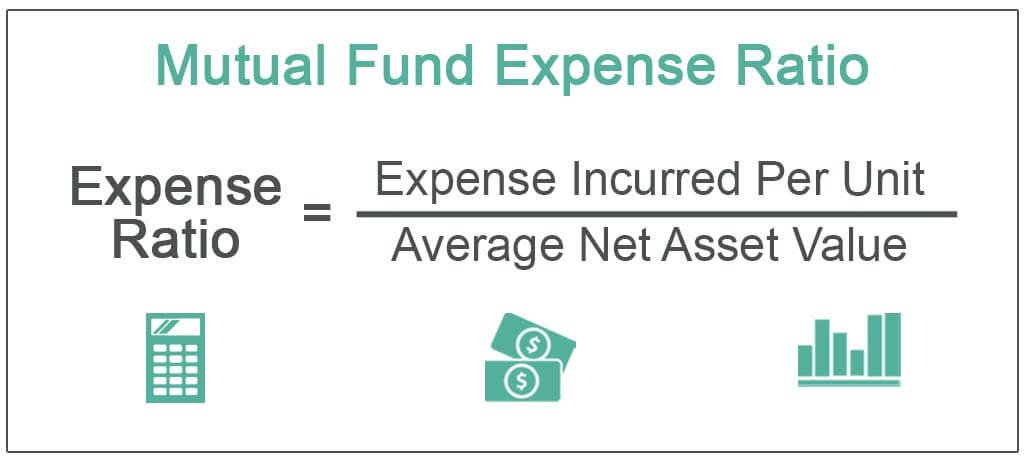Looking to secure a better mortgage rate? You’ve come to the right place! Negotiating a better mortgage rate can seem like a daunting task, but with the right tips and strategies, you’ll be well on your way to saving money and finding the perfect loan for your needs. In this blog article, we’ll share effective techniques that will empower you to get the best possible rate for your mortgage. So, let’s dive in and explore these valuable insights for negotiating a better mortgage rate.
Tips for Negotiating a Better Mortgage Rate
Introduction
Securing a mortgage is a significant financial decision in one’s life. It not only involves borrowing a substantial amount of money but also committing to long-term financial obligations. One crucial aspect to consider when obtaining a mortgage is the interest rate. Negotiating a better mortgage rate can save you thousands of dollars over the life of your loan. In this article, we will provide you with valuable tips on how to negotiate a better mortgage rate, ensuring that you secure the best possible terms for your home loan.
1. Prepare Yourself
Before stepping into negotiations, it’s crucial to arm yourself with knowledge and necessary information. By preparing in advance, you can approach the negotiation process confidently. Here are a few steps to help you get started:
Know Your Credit Score
Your credit score plays a crucial role in determining the interest rate you will be offered. Lenders typically offer better rates to borrowers with higher credit scores. Therefore, it’s essential to know your credit score well in advance. Access your credit report from reliable sources and review it for any errors or discrepancies. If you find any issues, take the necessary steps to resolve them before applying for a mortgage.
Research Current Mortgage Rates
Be aware of the current mortgage rates in your area. Researching the market will give you a benchmark for negotiation. Compare rates offered by different lenders and understand the factors that influence them, such as loan term, loan type, and your creditworthiness. This knowledge will enable you to assess the competitiveness of the rates offered to you.
Gather Your Financial Documents
Lenders often require extensive documentation during the mortgage application process. To streamline the negotiation process, gather all the necessary financial documents in advance. These may include pay stubs, tax returns, bank statements, and any other documentation required by the lender. Being well-prepared will demonstrate your readiness and seriousness to the lender, potentially improving your negotiation position.
2. Improve Your Financial Profile
Besides having a good credit score, there are other aspects of your financial profile that can positively impact your negotiation power. Here’s what you can do to improve your financial profile:
Save for a Higher Down Payment
A larger down payment can help you secure better mortgage rates. By saving more money upfront, you decrease the loan-to-value ratio (LTV), which reduces the lender’s risk. This reduction in risk may result in a lower interest rate being offered to you.
Reduce Your Debt-to-Income Ratio (DTI)
Lenders assess your debt-to-income ratio (DTI) to evaluate your ability to repay the mortgage. Lowering your DTI can make you a more attractive borrower, potentially leading to better interest rates. Consider paying off or reducing your existing debts before applying for a mortgage. This will demonstrate your financial responsibility and improve your negotiation position.
Consider a Co-Borrower
Adding a co-borrower with a strong credit score and stable income can enhance your financial profile. Lenders will take the co-borrower’s financial standing into account, potentially giving you access to better mortgage rates. However, be sure to consult with professionals to fully understand the implications of joint ownership.
3. Shop Around and Compare Offers
One of the most effective ways to secure a better mortgage rate is to shop around and compare offers from multiple lenders. Each lender has its own criteria for evaluating borrowers, which can result in different interest rate offers. Follow these steps to make an informed decision:
Obtain Loan Estimates
Request loan estimates from different lenders, which will include the proposed interest rate, loan terms, closing costs, and other pertinent details. Loan estimates provide a standardized format for comparing offers from different lenders. Analyze each offer carefully, paying attention to both the interest rate and the overall cost of the loan. This will help you understand the full financial implications of each offer.
Negotiate with Multiple Lenders
Once you have received loan estimates, don’t hesitate to negotiate with multiple lenders. Use the offers you’ve gathered as leverage during negotiations. Asking lenders to match or beat the lowest offer can lead to better rates or incentives such as reduced closing costs. Remember, lenders want your business, so there is often room for negotiation.
Consider Working with a Mortgage Broker
Mortgage brokers act as intermediaries between borrowers and lenders. They have access to multiple lenders and can help you find the best mortgage rates based on your financial profile. Mortgage brokers can simplify the process by gathering quotes from various lenders and negotiating on your behalf. Consider working with a reputable mortgage broker who can help you secure competitive rates.
4. Leverage Your Relationship with the Lender
If you have an existing relationship with a bank or credit union, you may have a better chance of negotiating a better mortgage rate. Here’s how you can leverage your relationship:
Showcase Your Loyalty
If you have been a loyal customer with the lender for an extended period, emphasize this during negotiations. Financial institutions often reward customer loyalty by offering better rates or discounts on closing costs. Highlighting your commitment to the bank can work in your favor during the negotiation process.
Bundle Your Products
If you currently hold multiple financial products with a lender, such as a checking account, savings account, or credit card, consider bundling them during the mortgage negotiation process. Lenders may offer preferential rates or incentives to customers who consolidate their financial relationships. This can be an effective way to negotiate a better mortgage rate.
5. Consider Paying Points
Paying points is an option to consider if you have extra funds available upfront. Points are prepaid interest that you pay at closing in exchange for a lower interest rate over the life of the loan. Each point typically costs 1% of the loan amount and can result in a reduction of the interest rate by a specific percentage. Consider the long-term savings and weigh them against the upfront cost before deciding to pay points.
6. Lock in Your Rate
Interest rates fluctuate regularly, and there is always a risk of rates rising during the mortgage application process. To protect yourself from potential rate increases, consider locking in your rate. A rate lock guarantees that the lender will honor the agreed-upon interest rate for a specified period, usually 30 to 60 days. This provides you with peace of mind and protects you from any market volatility.
Negotiating a better mortgage rate can save you a significant amount of money over the life of your loan. By following the tips outlined in this article, you can position yourself for a successful negotiation. Remember to arm yourself with knowledge, improve your financial profile, shop around for the best offers, leverage your relationships, consider paying points, and lock in your rate when appropriate. By taking these steps, you’ll be on your way to securing a mortgage with favorable terms and saving money in the long run. Good luck with your mortgage negotiation journey!
Note: The above tips are intended to provide general information and guidance. It is crucial to consult with professionals, such as mortgage brokers or financial advisors, to tailor these tips to your specific situation and ensure the best possible outcome for your mortgage negotiation.
Can I negotiate mortgage rates and how to get the best rates
Frequently Asked Questions
Frequently Asked Questions (FAQs)
1. How can I negotiate a better mortgage rate?
To negotiate a better mortgage rate, you can take the following steps:
- Research and compare lenders: Gather information about different lenders and their rates to identify the best options available to you.
- Improve your credit score: A high credit score can help you secure a lower interest rate, so focus on paying your bills on time and reducing your overall debt.
- Save for a larger down payment: Offering a larger down payment shows lenders that you are financially stable and can result in a lower mortgage rate.
- Shop around and ask for quotes: Contact multiple lenders and ask for mortgage rate quotes. Use these quotes to negotiate better terms.
- Consider a mortgage broker: Mortgage brokers have access to a variety of lenders and can help you find competitive rates.
2. Can I negotiate the closing costs associated with a mortgage?
Yes, closing costs can sometimes be negotiable. You can discuss the closing costs with your lender and see if there is any room for negotiation. It’s always worth asking if there are any costs that can be reduced or waived to save you money in the long run.
3. Should I consider paying points to lower my mortgage rate?
Paying points upfront can lower your mortgage rate, but it’s important to evaluate if it is the right decision for your situation. Consider how long you plan to stay in the home and whether the cost of the points will outweigh the savings in interest over that period. Discuss this option with your lender to determine if it aligns with your financial goals.
4. Is it better to get a fixed-rate or adjustable-rate mortgage?
The choice between a fixed-rate and adjustable-rate mortgage depends on your financial circumstances and risk tolerance. A fixed-rate mortgage offers stability with a consistent interest rate over the life of the loan, while an adjustable-rate mortgage typically starts with a lower rate but can fluctuate over time. Evaluate your budget and future plans to decide which option suits you best.
5. Can I negotiate a mortgage rate after locking it in?
Once you have locked in a mortgage rate, it can be challenging to negotiate further. However, some lenders may offer a float-down option that allows you to secure a lower rate if the market conditions improve before closing. Discuss this possibility with your lender to understand their policies regarding locked rates.
6. What factors can affect my ability to negotiate a better mortgage rate?
Several factors can influence your ability to negotiate a better mortgage rate, including your credit score, debt-to-income ratio, employment history, and the current state of the housing market. Lenders consider these aspects when determining the terms they can offer you. It’s important to present yourself as a financially responsible borrower to increase your chances of obtaining a favorable rate.
7. Is it necessary to hire a mortgage broker to negotiate a better mortgage rate?
Hiring a mortgage broker is not necessary but can be beneficial in certain situations. Mortgage brokers have access to a network of lenders and can help you find competitive rates based on your specific financial circumstances. They can also assist with the negotiation process and help you navigate the mortgage application process.
8. Can paying off other debts help me secure a better mortgage rate?
Paying off other debts can positively impact your credit score and debt-to-income ratio, which are important factors lenders consider when determining your mortgage rate. By reducing your debt load, you demonstrate financial responsibility and increase your chances of obtaining a better rate. However, it’s crucial to consider the overall impact on your financial situation before making any significant payments towards other debts.
Final Thoughts
Negotiating a better mortgage rate is crucial for saving money in the long run. Start by researching current market rates and comparing them to your lender’s offer. Armed with this knowledge, be confident and assertive in negotiating for a lower rate. Highlight your strong credit score, stable income, and consistent payment history to demonstrate your creditworthiness. Consider enlisting the help of a mortgage broker who can leverage their industry knowledge and negotiate on your behalf. Don’t be afraid to shop around and explore other lenders to find the best rate. By following these tips, you can improve your chances of securing a better mortgage rate and saving thousands of dollars in interest payments.



